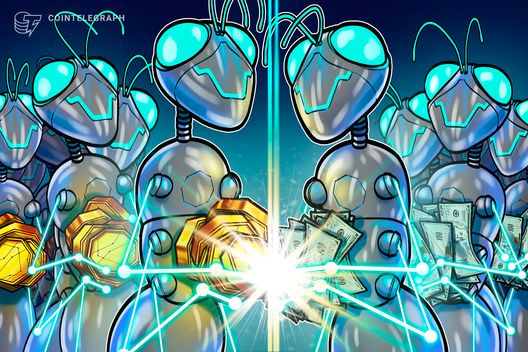In a notable development within the cryptocurrency industry, Do Kwon, the co-founder and former CEO of Terraform Labs, is set to face a criminal fraud trial in the United States. Scheduled for January 2025, the trial comes after Kwon was extradited to the U.S. following his detention in Montenegro. The prosecution has revealed that this trial will involve a staggering six terabytes of data, which is to be reviewed by both sides during the discovery phase. This considerable amount of digital evidence is expected to create some logistical hurdles, as the government navigates issues related to encrypted information and translations from Kwon’s native Korean.
During an initial court hearing in Manhattan, lead prosecutor Jared Lenow acknowledged that accessing critical mobile data from four cell phones will contribute to further delays, while District Judge Paul Engelmayer humorously remarked on the unusual pace of the trial’s scheduling. Kwon, who has been held without bail, previously pleaded not guilty to a nine-count indictment that includes serious charges such as securities fraud and money laundering conspiracy. These allegations arise from the catastrophic billion collapse of the Terra/LUNA ecosystem back in 2022, a pivotal incident that not only affected investors but also resonated throughout the broader cryptocurrency market.
Adding to his legal woes, Kwon and Terraform Labs are facing civil fraud accusations brought forth by the U.S. Securities and Exchange Commission (SEC), leading to a verdict that ordered Kwon to pay substantial fines totaling .5 billion, including an individual sanction of 0 million. Meanwhile, Terraform Labs has filed for bankruptcy, showcasing the extensive fallout from these events. The upcoming status conference is set for March 6, where further developments in the case will be discussed, keeping a close eye on the future of Kwon and the wider implications for the cryptocurrency landscape.

Do Kwon’s Criminal Fraud Trial Scheduled
Key points from the upcoming trial of Do Kwon, co-founder of Terraform Labs, include significant implications for both the legal system and affected investors.
- Trial Date: Kwon’s criminal fraud trial is tentatively scheduled for January next year.
- Data Volume: The discovery process involves reviewing a massive six-terabyte trove of data.
- Access Challenges: Prosecutors face delays accessing encrypted information and unlocking cell phones linked to Kwon.
- Language Barriers: Extracted materials must be translated from Korean, complicating the process.
- Unprecedented Delays: Judge Paul Engelmayer noted the lengthy timeline for trial initiation is unusual in his career.
- Charges Against Kwon: Kwon faces a nine-count indictment, including securities and wire fraud related to the Terra/LUNA ecosystem collapse.
- Previous Convictions: Kwon was found guilty of civil fraud and ordered to pay .5 billion in penalties, with 0 million directly from him.
- Company Bankruptcy: Terraform Labs has filed for bankruptcy following these legal challenges.
- Next Court Date: The next status conference is set for March 6, providing further updates on the case.
The implications of this trial could affect readers in several ways, especially if they are investors or participants in crypto markets:
- Investor Impact: A ruling in the trial could set precedents for investor protections and corporate accountability in the cryptocurrency space.
- Market Confidence: The outcome may influence public confidence in cryptocurrency projects and investment behaviors.
- Legal Framework: This case may prompt regulatory changes regarding fraud and transparency in digital asset markets.
Do Kwon’s Fraud Trial: A Glimpse at Legal Turmoil in the Cryptocurrency Space
The upcoming trial of Do Kwon, co-founder of Terraform Labs, has raised eyebrows across the cryptocurrency ecosystem and legal arenas alike. Set to commence next January, this trial is laden with significant implications not just for Kwon, but for the wider industry grappling with regulatory scrutiny and legal challenges. The sheer volume of evidence—over six terabytes—presents a unique situation as it could heavily influence the prosecution’s strategy, marking a substantial challenge for Kwon’s defense team.
Competitive Advantages: One of the clear advantages in this case lies in its high-profile nature, drawing attention to the complexities of cryptocurrency regulations. This might prompt lawmakers to create more robust regulations and clearer guidelines for future cases, benefiting compliant businesses by setting a clearer framework. Moreover, the extensive amount of data could provide critical insights into the operational ethics of cryptocurrency firms, potentially creating a ‘watchdog’ effect that encourages better practices across the industry.
Disadvantages for Kwon: On the flip side, Kwon appears to be at a significant disadvantage with the complications arising from encrypted data and the challenge of translating materials from Korean. These hurdles can prolong the trial and muddy the defense’s narrative, thus painting Kwon in a less favorable light. The decision to postpone the trial until next year might create a perception of evasiveness, jeopardizing public trust and affecting his defense team’s credibility.
Industry Impacts: The implications of this trial extend beyond Kwon. For investors and entrepreneurs in the cryptocurrency space, the outcome could set a precedent for future cases, shaping how fraud within digital currencies is prosecuted. The unfortunate collapse of the Terra/LUNA ecosystem, leading to Kwon’s significant legal challenges, could deter potential investors from participating in similar ventures, stirring doubts about the safety of their investments.
Furthermore, the legal turmoil surrounding Kwon and Terraform Labs may pose problems for startups in the crypto arena. With increased regulatory scrutiny expected to rise in light of Kwon’s case, emerging companies may face an uphill battle in gaining compliance and investor confidence, fostering an environment of caution rather than innovation.
Ultimately, as the case progresses, it will be fascinating to observe how both Kwon’s situation and the broader cryptocurrency landscape respond to this unprecedented level of regulatory attention.















